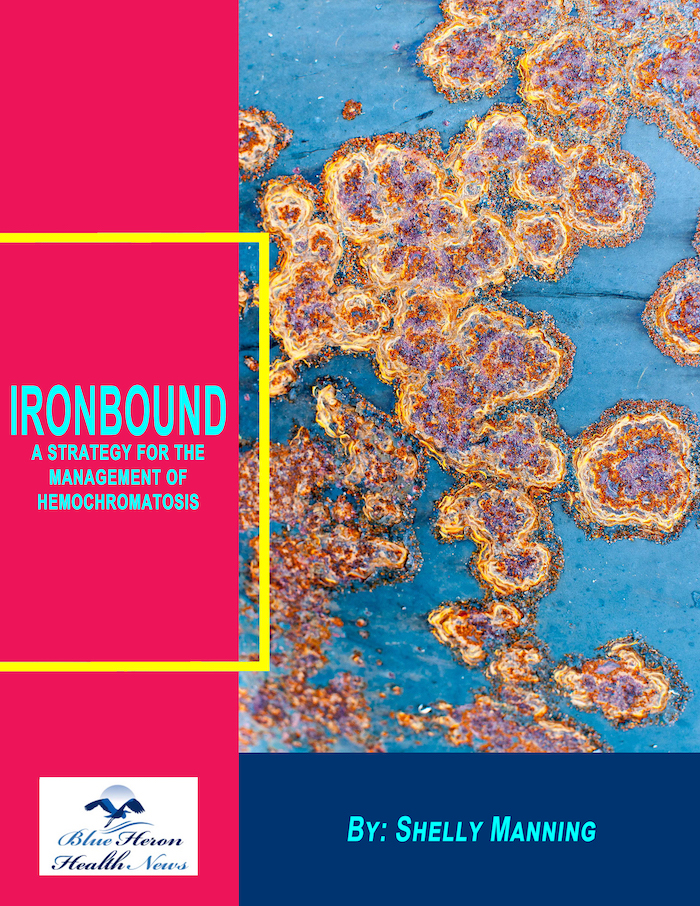
Ironbound™ A Strategy For The Management Of Hemochromatosis by Shelly Manning if you are suffering from the problems caused by the health condition of HCT due to excess amount of iron in your body then instead of using harmful chemical-based drugs and medications you are recommended to follow the program offered in Ironbound Shelly Manning, an eBook. In this eBook, she has discussed 5 superfoods and other methods to help you in reducing the level of iron in your body in a natural manner. Many people are benefited from this program after following it consistently.
How does blood loss affect iron levels in the body?
Blood loss significantly affects iron levels in the body because iron is a critical component of hemoglobin, the protein in red blood cells that carries oxygen. When blood is lost, iron is also lost, and if this loss exceeds the body’s ability to replenish iron stores, it can lead to iron deficiency anemia. Here’s a detailed explanation of how blood loss affects iron levels:
1. Hemoglobin and Iron
- Hemoglobin Function: Hemoglobin is responsible for transporting oxygen from the lungs to tissues and organs. It contains heme, an iron-rich compound that binds oxygen.
- Iron’s Role: Each hemoglobin molecule requires iron to function properly. About 70% of the body’s iron is found in hemoglobin.
2. Blood Loss and Iron Depletion
Acute Blood Loss
- Causes: Acute blood loss can result from trauma, surgery, or severe injury.
- Immediate Impact: A sudden loss of a significant amount of blood leads to a rapid decrease in the number of red blood cells and the iron contained within them.
- Recovery: The body tries to compensate by increasing red blood cell production, which requires iron. If iron stores are inadequate, this can quickly lead to iron deficiency.
Chronic Blood Loss
- Causes: Chronic blood loss can occur due to conditions like gastrointestinal bleeding (from ulcers, polyps, or cancer), heavy menstrual periods, or frequent blood donations.
- Slow Depletion: Over time, even small amounts of regular blood loss can deplete the body’s iron stores.
- Compensation Mechanism: The body initially uses stored iron in the liver, spleen, and bone marrow to produce new red blood cells. Once these stores are exhausted, iron deficiency anemia develops.
3. Iron Balance and Storage
Iron Absorption
- Daily Needs: The average daily iron requirement varies by age, sex, and physiological status (e.g., pregnancy). For example, adult men need about 8 mg/day, while women of reproductive age need about 18 mg/day.
- Dietary Iron: Iron from the diet is absorbed in the small intestine. Heme iron from animal products is absorbed more efficiently than non-heme iron from plant sources.
Iron Storage
- Ferritin: Iron is stored in the liver, spleen, and bone marrow as ferritin. This stored iron is mobilized when dietary intake is insufficient to meet the body’s needs.
- Depletion: With ongoing blood loss, ferritin levels decline as the body uses stored iron to maintain red blood cell production.
4. Consequences of Iron Deficiency Due to Blood Loss
Anemia Symptoms
- Fatigue and Weakness: Reduced hemoglobin levels impair oxygen delivery to tissues, leading to fatigue and weakness.
- Pale Skin: A lower number of red blood cells can cause pallor.
- Shortness of Breath: Decreased oxygen-carrying capacity can lead to shortness of breath, especially during physical activity.
- Heart Palpitations: The heart works harder to pump oxygen-rich blood, leading to palpitations.
Cognitive and Immune Function
- Cognitive Impairment: Iron deficiency can affect brain function, leading to difficulty concentrating and memory problems.
- Immune Function: Iron is essential for a healthy immune system. Deficiency can increase susceptibility to infections.
5. Diagnosis and Treatment
Diagnosis
- Blood Tests: Blood tests, including complete blood count (CBC), serum ferritin, and serum iron levels, are used to diagnose iron deficiency anemia.
- Identifying Sources of Blood Loss: Identifying the underlying cause of blood loss is crucial. This may involve gastrointestinal investigations (e.g., endoscopy) or gynecological evaluation.
Treatment
- Iron Supplements: Oral iron supplements or, in severe cases, intravenous iron therapy may be prescribed to replenish iron stores.
- Dietary Changes: Increasing dietary intake of iron-rich foods, especially heme iron sources, and using vitamin C to enhance non-heme iron absorption.
- Addressing Underlying Causes: Treating the root cause of blood loss, such as medication for ulcers or surgical intervention for polyps, is essential to prevent recurrent iron deficiency.
Conclusion
Blood loss directly impacts iron levels by reducing the number of red blood cells and the hemoglobin they contain. Whether acute or chronic, blood loss can deplete the body’s iron stores, leading to iron deficiency anemia if not adequately compensated by dietary intake or medical intervention. Addressing both the iron deficiency and its underlying causes is crucial for effective management and prevention of recurrent anemia.
Ironbound™ A Strategy For The Management Of Hemochromatosis by Shelly Manning if you are suffering from the problems caused by the health condition of HCT due to excess amount of iron in your body then instead of using harmful chemical-based drugs and medications you are recommended to follow the program offered in Ironbound Shelly Manning, an eBook. In this eBook, she has discussed 5 superfoods and other methods to help you in reducing the level of iron in your body in a natural manner. Many people are benefited from this program after following it consistently.